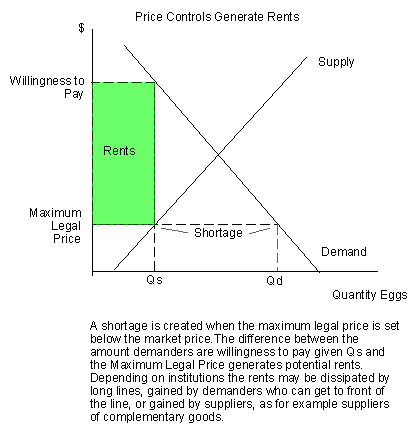The Oocyte Cartel
The Society for Assisted Reproductive Technology (SART) represents more than 85 percent of the assisted reproduction industry. SART requires that its members work only with agencies that limit compensation to egg-donors to around $5000 or a maximum of $10,000 (figures decided upon by the ethics committee of an affiliated organization, The American Society for Reproductive Medicine (ASRM)). In other words, ASRM-SART acts as a buyer’s cartel.
In 2011, Lindsay Kamakahi launched a class action suit against ASRM-SART challenging their horizontal price-fixing agreement as per se illegal under the Sherman Antitrust Act. ASRM-SART tried to have the case dismissed but a judge recently denied the dismissal in the process making it clear that the plaintiffs have a good case.
ASRM-SART argue that their maximum price is really about protecting women and that compensation “should not be so excessive as to constitute undue inducement.” Egg donation does involve extensive screening, time and some health risks. One would think, however, that the proper response for those interested in protecting women would be to ensure that the women are fully informed and that they are paid high wages not low wages.
The paternalistic policy of the ASRM-SART especially rankles because it applies only to women, sperm donations are not regulated. Of course, sperm donation isn’t risky but we also don’t see laws limiting the wages of miners to protect miners (mostly men) from “undue inducement.” The societal expectation seems to be that men are appropriately motivated by self-interest but women may be appropriately motivated only by altruism.
I am in agreement with Kimberly D. Krawiec who writes in her excellent paper Sunny Samaritans and Egomaniacs: Price-Fixing in the Gamete Market:
It is ASRM’s paternalistic and misguided attempts to control oocyte donor compensation through the same type of professional guidelines that courts have rejected when employed by engineers, lawyers, dentists, and doctors that should raise an ethical red flag.
 ASRM-SART surely believe that they are doing good but I think it no accident that they also do well from a policy that reduces the price of their inputs. A price controlled below the market price generates rents. In the traditional analysis, the rents are dissipated away by long-lines, a form of rent seeking (see Modern Principles–first edition now a bargain!). It’s also possible, however, for suppliers to grab up the rents, especially suppliers of complementary goods.
ASRM-SART surely believe that they are doing good but I think it no accident that they also do well from a policy that reduces the price of their inputs. A price controlled below the market price generates rents. In the traditional analysis, the rents are dissipated away by long-lines, a form of rent seeking (see Modern Principles–first edition now a bargain!). It’s also possible, however, for suppliers to grab up the rents, especially suppliers of complementary goods.
For example, it’s often been pointed out that in the organ donor market the hospitals, surgeons and executives all get paid and paid well; the only person not getting paid is the person who provides the transplant organ. But we can say more–one of the reasons the hospitals, surgeons and executives get paid well is precisely that the donor is not paid. The shortage created by the price control drives the demander’s willingness to pay upward and some of the difference between the willingness to pay and the maximum legal price is captured by the suppliers of complementary inputs. How do we know? In the 1990s, entry into the transplant business grew much faster than did the supply of transplant organs. In fact, transplants were so profitable there was a rush to transplant that increased the number of centers but drove down center volume thereby reducing patient survival rates.
Similarly, by limiting egg-supply the suppliers of assisted reproductive services may be able to increase their share of the total gains from trade.
Although ASRM-SART may profit from restricting donor compensation there is another issue at large, the repugnance constraint. The repugnance and disgust centers of the brain are old and deep and often revolve around issues of body integrity, body products, hygiene, sex and death. Birth treads uneasily in many of these waters already and egg donation adds to this volatile mix issues of gender, personhood, identity and genetics all of which prime for a repugnance storm. The plaintiff’s case is sound but if the antitrust laws prevent ASRM-SART from limiting prices–or saying that they limit prices–and if egg donation were to become even more of a market in everything might there not be a backlash and an outright ban on compensated donors, as is the case in many other countries and for transplant organs in this country? I hope not but it is a real possibility.
The ban on compensated transplant organ donation has led to hundreds of thousands of excess deaths. A ban on compensated sperm and egg donation would lead to a dearth of lives.